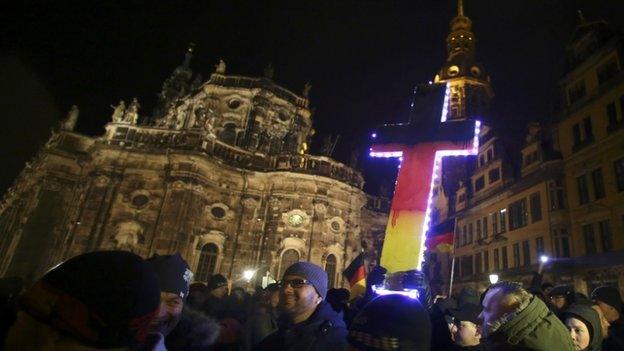Germany 'anti-Islamisation' Pegida rally cancelled
- Published
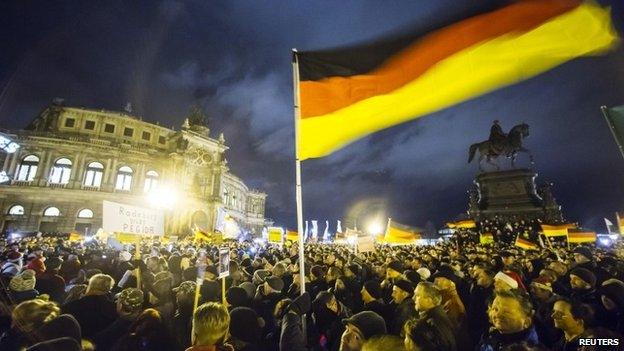
Pegida protesters have been rallying each Monday for weeks
A planned rally by Germany's "anti-Islamisation" Pegida group has been called off after police received a threat against one of the organisers.
Pegida announced the measure shortly before police said the threat was "concrete" and no demonstrations would be allowed in Dresden on Monday.
Pegida has held a series of rallies, attracting record numbers last week.
Similar protests have taken place elsewhere in the country and have been condemned by German leaders.
Writing on its Facebook page, Pegida said it had no choice but to cancel the rally to ensure protesters' safety.
It urged supporters to hang flags out of their windows and light candles instead.
Meanwhile in the western city of Essen about 50 demonstrators from the far-right Hooligans Against Salafists group (Hogesa) were outnumbered by more than 2,000 counter-protesters on Sunday.
The Hogesa demonstration was banned by police and those attending were detained.
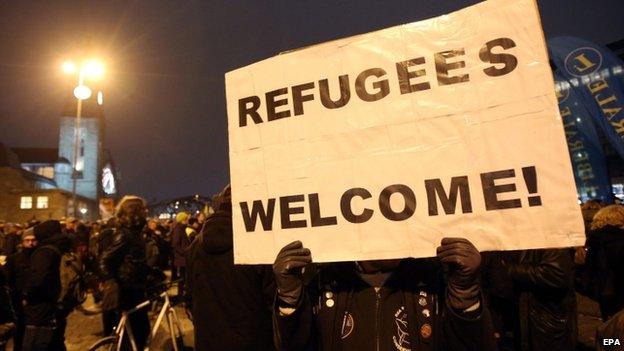
Thousands have joined rival rallies against Pegida
German magazine Der Spiegel reported on Friday that intelligence agencies had intercepted messages from known jihadists planning strikes against the group.
Pegida last week defied calls from German leaders to stay at home, following the deadly attacks by Islamists in France.
Justice Minister Heiko Maas urged organisers not to "misuse" the attacks.
However the rally went ahead, with a record 25,000 people attending in Dresden.
Anti-Pegida rallies drew tens of thousands in Dresden, Leipzig, Munich and Hanover.

What is Pegida?
Founded in Dresden by activist Lutz Bachmann in October 2014
Acronym for Patriotische Europaer Gegen die Islamisierung des Abendlandes (Patriotic Europeans Against the Islamisation of the West)
Umbrella group for German right wing, attracting support from mainstream conservatives to neo-Nazi factions and football hooligans
Holds street protests against what it sees as a dangerous rise in the influence of Islam over European countries
Claims not to be racist or xenophobic
19-point manifesto, external says the movement opposes extremism and calls for protection of Germany's Judeo-Christian culture

- Published13 January 2015
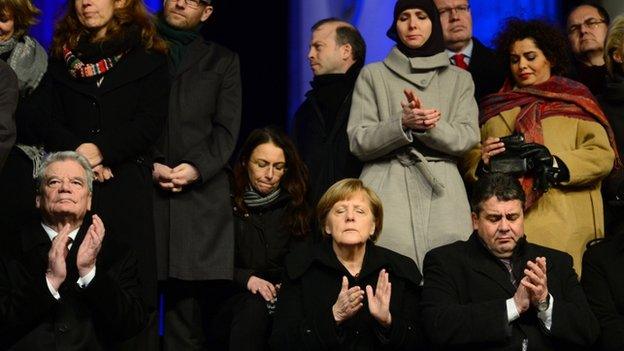
- Published13 January 2015
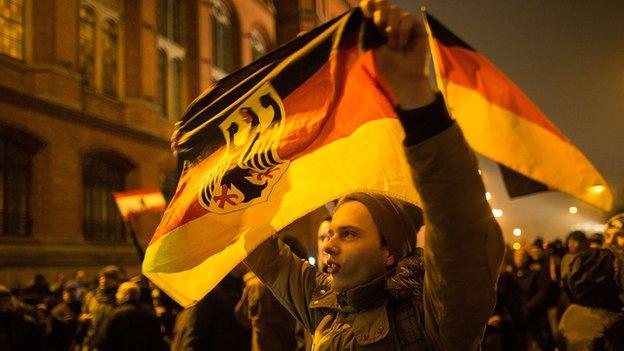
- Published16 January 2015
